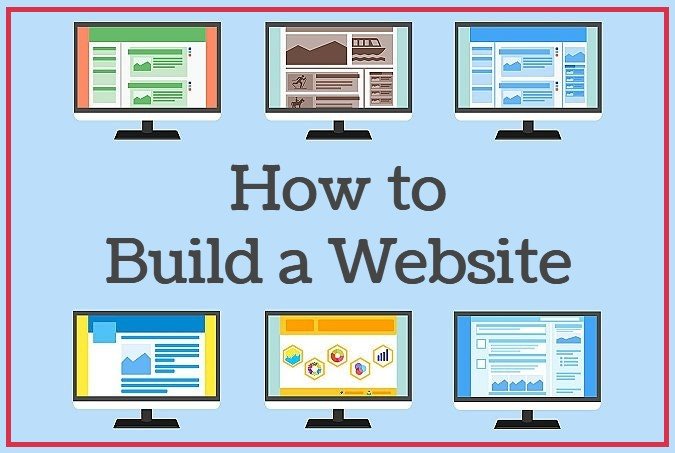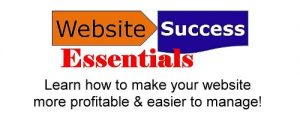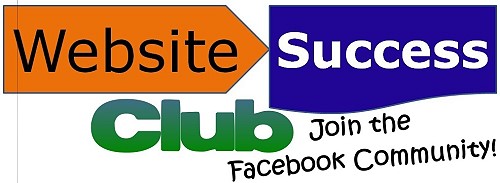By Kurt Scholle

I get asked how to build a website all the time. Sometimes it’s, “what do I need to learn to create a website? Sometimes people just want to know how much it would cost. Earlier this year, I wrote about how to build a business website.
I shared 7 tips that will help you get more sales and profits from your website with less stress.
The keys I listed were…
- Develop a written Website Strategy Plan.
- Define your Target Persona
- Creating content that converts
- Getting visitors to that content
- The importance of having a mobile-friendly site
- Setting up Google Analytics and Search console so you’ll know your numbers
- Mindset
All good advice, but there is certainly more to it.
How to Build a #SMB Website Using WordPress. Get all the tips, trick and best practices! Share on XBenefits When You Build a Business Website
Free advice to get you started right!
I help people build websites and make existing websites better.
I have a fast-start checklist of things to do when I teach people how to build your own website and getting it indexed by search engines quickly. I’ve trained hundreds of people to do this at conferences, Meetups, webinars and my Website Success Essentials course.
These tactics can also be used on existing websites and blogs.
How To Build a Website From Scratch
 WordPress is an excellent choice for entrepreneurs and small businesses to build their website. 35% of the Internet is powered by WordPress. According to W3Tech, nearly 62% of the CMS market is WordPress and that’s more than Joomla and Drupal combined.
WordPress is an excellent choice for entrepreneurs and small businesses to build their website. 35% of the Internet is powered by WordPress. According to W3Tech, nearly 62% of the CMS market is WordPress and that’s more than Joomla and Drupal combined.
Fortune 500 companies use WordPress! Sites like Best Buy, TechCrunch, Sony, CBS Radio, BBC America and UPS build their sites using WordPress. An estimated 600 new websites a day are built using the popular CMS. It’s available in 52+ languages.
No need to learn HTML or buy expensive programs. You can choose a theme design that looks like your niche and includes the design/page components you want and not things you don’t.
For instance, you can choose designs for virtually any business, from for-profit to non-profit. It is an ideal platform for local businesses like restaurants, optometrists, gift shops, graphic artists and painting contractors to public speakers, non-profit organizations, media outlets, doctors, dentists and lawyers.
But just because you can log in to WordPress does not mean you will be any more successful with your website than me saying, “I’m pretty handy around the kitchen, I could easily make dinner for 300 at a wedding reception.” More on that below.
WordPress gives you a decent, affordable, easy to learn platform or Content Marketing System (CMS) and often saves the expense of hiring a designer or ecommerce expert.
What is CMS?
 CMS is an acronym for Content Management System. It is software that allows you to build or manage a website without having to learn how to code a website. Content Management Systems allow you to layout and format your content. You might also manage certain aspects of the site using applications or plugins that help secure or back up the site, sell online, add media or offer additional functionality.
CMS is an acronym for Content Management System. It is software that allows you to build or manage a website without having to learn how to code a website. Content Management Systems allow you to layout and format your content. You might also manage certain aspects of the site using applications or plugins that help secure or back up the site, sell online, add media or offer additional functionality.
That said, there is MUCH more to building and marketing a successful website. We will discuss all of those in the weeks to come.
But for those of you who want to Do It Yourself or want to manage an employee or retain an outside vendor, this is a good way to learn how to build a website or improve an existing one.
Future articles will cover more intermediate or advanced topics.
Building a Website Using WordPress
You can use save a ton of time and money using a free theme (Google “free WordPress themes“) but paid themes are usually better supported and more secure. Google “Best WordPress themes” or something similar. I like themes from StudioPress, but there are other great vendors. Expect to pay $40-$100 for the theme.
You need a domain name and a hosting account to get started. Some companies offer ‘WordPress hosting,’ which has WordPress, which is free to download, already loaded on the server. It contains a free theme which may or may not look like you envision it. But it’s fully functional and usable for basic learning.
Building a Website for Free
 My friend, Felicia Slattery, once asked me about building a free website for her husband’s new corporate fitness business. Read on for more.
My friend, Felicia Slattery, once asked me about building a free website for her husband’s new corporate fitness business. Read on for more.
You could also host a WordPress site for free at WordPress.com, but I recommend that you self host it – that way you own it and control it. You also have more options. If your web host does not offer packages with basic WordPress included, you can download it at WordPress.com
I don’t recommend using ‘website builders’ like those offered by GoDaddy, WIX, SquareSpace and Weebly. Your site is on their platform. It’s not portable in that you can’t download your site and take it to another web host. Yes, they can be beautiful sites, but they don’t perform as well as self-hosted WordPress, IMHO.
I think you’ll want to buy a WordPress theme that has the look and feel you want. You wouldn’t was a site designed for e-commerce for your restaurant, would you? Similarly, a theme designed for a hair salon would not be appropriate for a school or law office. You will be able to filter by type of site when you go searching for a theme.
Each theme will have a primary layout and most will allow you to customize the look and feel, like changing the colors.
ProTip: Make sure your theme is “mobile ready” or “responsive,” which means it shows up well on mobile browsers such as smartphones and tablets. Mobile traffic represents half of all traffic and for brick and mortar locations, customers may be in their car and looking for you on their smartphone or iPad NOW!
How to Build Your Own Website with WordPress
 WordPress makes beautiful blogs, but it’s a great system for building traditional websites too. You can add widgets or plugins to your site (many of them free) that help secure, design or manage your site. They can also be used for functionality that used to cost hundreds or thousands if done by a programmer.
WordPress makes beautiful blogs, but it’s a great system for building traditional websites too. You can add widgets or plugins to your site (many of them free) that help secure, design or manage your site. They can also be used for functionality that used to cost hundreds or thousands if done by a programmer.
As with spending a few bucks on a good theme, a modest investment in a few plugins, or the Pro version of plugins, is money well spent. However, most plugins are free and available at https://wordpress.org/plugins/. As of this writing, there are 57,871 to choose from.
One such plugin will show social media icons so you can easily add links to your social accounts.
Others will integrate with email management systems like AWeber or MailChimp to collect names and email addresses, which is one of the most profitable things you can do to build a successful website.
One favorite is the Akismet plugin, which helps reduce comment spam on blogs.
I like using a plugin for backing up the WordPress database, which is most of the content of a site, but most web hosts also have at least basic recent backups available. THIS IS IMPORTANT! If your site gets erased or taken down by hackers, it’s MUCH EASIER and cheaper to restore the site from a backup than re-creating it from scratch.
There are other plugins that help secure your site from nasty hackers, who are targeting smaller websites now days. Larger sites are more secure, so they’re going after the SMBs.
There must be 100+ things that plugins can do for your website to make it more profitable and easier to manage. (Future post, for sure!)
Other plugins help market your website. If you want to attract free traffic from search engines, the Yoast plugin (free or paid versions) does a very nice job and helps you learn how to optimize your site for specific keywords or keyphrases you think people will use when looking for your goods or services.
Search Engine Optimization (SEO) is NOT about just putting words on a page
To find out if your own website is indexed, type “site:domain.com” into Google or Bing. (E.G. site:cnn.com) It will give you a list of pages in its index.
ProTip: To find specific content on a blog related to a keyword, simply add the keyword to the query. (E.G. site:websitesuccessguy.com analytics) That will result in a list of every articles I’ve written on this blog about ‘analytics.’ It’s good for competitor research too!
Knowing what keywords to try and rank for is important and takes a little work. (See below) Ranking for your name or business name may have some value, and shouldn’t be too difficult. Ranking for queries by people who do not know you, but are in need of your specific product or solution puts money in your account!
Webmaster Tools
Signaling the search engines that there is a new site online AND having some feedback from them is critically important! I recommended that Felicia set up Google Webmaster Tools for the site. (Bing has their own version and I would set it up too) Webmaster Tools allows you to communicate with the search engines and for them to tell you if they’re having an issue with your site.
ProTip: By setting it up, you are telling Google and Bing that a new site exists. And if anyhing changes in the future, you’ll find out when you log in to Webmaster Tools.
For instance, we just received an email from Google Webmaster Tools that Googlebot (Google’s web crawler) could not access DNS records for a client’s site. Great service having the search engines report problems accessing your site or related records! They even suggested a solution! (If that’s all you get out of this article, your time was well worth it. Most people do not set up Webmaster Tools.)
One of the best benefits of Webmaster Tools is to submit a sitemap that they can use to better index the site. There are two kinds; HTML sitemaps were first and are not used by search engines as much, and XML sitemaps, which are only used by search engines – they tell search spiders what pages are where.
Guess what? There is a plugin for that!
Same with Google Analytics. Makes it really easy!
How to Build a Website With WordPress Plugins
I suggested that she add the following plugins to Brent’s site:
- To add a sitemap to his new site to help search engines find it. Use the plugin Google XML Sitemaps by Arne Brachold. Then tell webmaster tools where to find it.
- Add Google Analytics so you can see who is visiting and where they came from. First, set up a Google Analytics account with Google and get a “UA code” that looks something like UA-12345678-1. I recommend using the Google Analytics for WordPress by Joost de Valk plugin. Activate it and manually enter the UA code. The plugin allows you to confirm that it is installed and working properly.
- I would also recommend a good SEO plugin, which helps optimize your site for the one keyword (or phrase) you should focus on. This plugin will actually analyze your use of keywords and make recommendations. Of the two I recommend most, I’d say you would do well to install the Yoast SEO plugin. Search for “Yoast SEO” in the plugin directory.
From your Admin panel, select Users then Add New. Then search for the recommended plugins (or choose your own). They are pretty essential. (There are more I recommend, but that’s the subject of a whole new blog post)
Felicia offered to make dinner for us if I would set these plugins up for her, and since I’ve forgotten how good mom’s cooking was, I took her up on the offer. (Not that we ever actually sat at a family dinner table together, but why ruin a good story, right?)
Don’t tell her how easy this is to do. I’m hoping to eat like a King!
Content Creation: Matching the Message with the Audience
 Felicia is a super good writer, but sometimes it helps to have an objective third party look at the content. (I need it for mine!) I review websites objectively on a marketing blog and when doing competitive analysis for my own clients.
Felicia is a super good writer, but sometimes it helps to have an objective third party look at the content. (I need it for mine!) I review websites objectively on a marketing blog and when doing competitive analysis for my own clients.
The Home page content looked more like it was intended for individuals looking for a personal trainer than for an audience who could hire him to develop or manage a corporate fitness program. So, while the picture to the left is fun, it probably would not be appropriate for Brent’s objectives. Just sayin’.
To create content that appeals to your target audience, you need to know who they are what solutions they are looking for. Then create content that provides the solution.
Keep all that in mind while looking for a design (or theme) for your site.
Read “How to Chunk Website Content“
Felicia and I both use freekeywords.wordtracker.com for keyword research and you should learn how to use it – it’s free! I also recommend using the Google Adwords Keyword Tool in their Keyword Planner to come up with ideas.
Using both of those tools is fodder for another post, but you can easily find guides and tutorials that will help you research your niche.
I recommended that she focus on one relevant keyword per page and use the keyword in the:
- Page Name
- Title
- Sub-Headlines
- Content
- Meta Description
- Image Alt-Tags (file names and descriptions)
We go into much more detail in the Ultimate Guide to SEO.
ProTip: For those of you learning how to build your own website for free or for the first time, it is extremely important to link pages and posts to one another for 2 reasons. 1) to make your visitors consume more of your content and 2) to help the search engines index your site. (Which is one of the main reasons that “Sis” contacted me in the first place.)
Using WordPress to build your website is easy and very effective. You can build great pages and the blogging component can be used for creating content that people are looking for. Focus on providing solutions in blog posts and then link to the appropriate page to seal the deal!
Brent had written some posts on a Blogspot blog and Felicia asked if that should be re-purposed on the new site. Nope, I replied. Blogspot is an authority site and having a link from there to the new site is a good idea.
ProTip: Creating new content on sites like Blogspot, Medium, Tumblr or something similar and linking to your site can be an great tactic for old and new sites alike.
What I recommended is to update the content, if needed, then link to the appropriate page or a new blog post to get that good link juice!
Having the same content on two different sites can be confusing to Google. This is referred to as “duplicate content” and Google will not list both pages in the SERPs. Usually, they will include the content they think was published first, so you don’t want your primary site to be the 2nd place it’s found.
Read “Copywriting Tips for Entrepreneurs.“
Content Idea
 Different types of content work better than others in different niches. ‘List articles’ always top the list; something like “3 Things…” or “5 Ways…”
Different types of content work better than others in different niches. ‘List articles’ always top the list; something like “3 Things…” or “5 Ways…”
In Brent’s case, it might be a post on “3 Things That Should Be Included in Every Corporate Fitness Program” and then a separate post for each of the 3 things, each optimized for a specific keyword and linked from one to another. (4 posts total)
Can you see how matching common queries to your content will attract a qualified audience?
Another idea might be, “5 Ways to Make Your Workforce Healthier and More Productive” with the original post and 5 followups all linked together and optimized for related keywords.
Constantly adding related content, optimized for different keywords results in a comprehensive website and the result is more than the sum of the parts.
Linking onsite and offsite is one of the most important elements of website success! Especially for new sites looking to get indexed.
Creating content for websites is one of the biggest obstacles when we tackle how to build a website. Read more here.
The Importance of Linking
There is much debate today on the value of linking to a website from other sites and I think it’s a good idea for several reasons. The search engines still take inbound links into consideration, some more than others. But real people may discover your site by reading the content on other sites. The more places people discover you, the better!!
With that in mind, consider these:
Study the Top 10 (Page 1 of the SERPs) sites for each of your top 5-10 keywords. That’s good for competitive analysis, but those sites will be good places to make blog comments or to submit guest posts. If you’re going to comment, PLEASE read their content and add VALUE to their post. Don’t just say, “Hey, nice post.” Your name should include a link back to your site. It’s not important if comments are Do Follow or No Follow, but ‘Do Follow’ links are preferable. (More on this in another post and in my course)
Approach these blog owners with ideas for a guest post. Guest posts usually include your name and a link back to your site. Do not re-purpose old content! Write really good new content that you would be proud to have on your own site.
Putting content on Authority Sites helps the ranking issue Felicia approached me about. YouTube videos and Powerpoint presentations on Slideshare are great examples of having your content on Authority Sites, but they are also communities where people go to find content, including products, services or solutions that you can provide. Where else do your prospects hang out? Where else can you find them and meet them online? Lately, re-publishing your content on Medium or LinkedIn helps build an audience.
WordPress “pings” some search engines whenever new content is published, but it might help to register with the various blog directories that are available. Most are free and for now those are good enough. To find out where, simply Google “blog directories.” Cruising through some of them may help your market and competitive intelligence too!
Write a few unique articles on article directories like Ezine Articles and Articles Base. Jeff Herring is the authority on Article Marketing. Read some of his work here. Article directories used to be authority sites, but Google devalued them with algorithm updates in the last few years, so they’re not as beneficial in that regard. But people use your articles, un-edited, on their own sites and the deal is that the link to your site can’t be removed.
ProTip: Make all links look natural. And I would never recommend trying to “finesse” the search engines. If you have a variety of links from a variety of places, you stand a better chance of people finding you. Don’t use the same ‘anchor text’ for each link either, which is using the same keyword over and over when linking on your site or to it. That was a game people played a while ago and it can hurt you today. Just create good content that people can use. It will pay dividends.

Two Critical Pages for Every Website!
We find that many site visitors visit About/About Us/About Me pages and they are thought to be important to Google’s ranking factors. If visitors are looking for them and Google prefers them, I would include them in your site. About pages can also help improve your authority and expertise, which are factors in E-A-T.
Be sure to link out to other sites and organizations you’re connected with on your About page. Same for your LinkedIn profile, some YouTube videos, webinars or Blog Talk Radio appearances. Your About page is not your resume, but much of that content should be considered!
If people are considering your product or service, you should give them as much good stuff as possible in as many places as possible! Link out to your other sites and profiles. Links are good!
Google also requires each site to have Contact or Contact Us pages and they only help make connections that can lead to your preferred outcomes.
A real phone number on your Contact can be beneficial as well as email links and links to your Twitter, Facebook and other social accounts. Make it easy for them to find and contact you!
What I’ve discussed today is just the tip of the iceberg on how to build your own website, but it’s a strategy to get your site up quickly and to signal to the world that you are online. You will want something more in the future. Building a successful website doesn’t happen overnight and it takes real work. How to build a profitable website is what we talk about on this blog and we will be talking about taking your new site a step further as we continue.

More to come in the weeks and months ahead!
Working on my brother-in-law’s (except we’re not related, but why ruin a good story?) site with my big sister from another mother, Felicia, brought back fond memories of when we played as kids and I pulled her ponytail on the playground.
Except that’s not true either. The truth is that she once broke my nose with a flying karate kick. She can be really mean.
Which may not be exactly true either, but why ruin a good story? Luv you, sis!
Did you learn anything useful from this?
If you like what you’ve learned here about how to build a website, then I would invite you to try my Website Success Essentials course, which is designed to make your website more profitable and easier to manage. We go into much more detail than we can in a blog post and we deliver weekly lessons with bite-sized tasks that won’t overwhelm you or your team. I think the return on your investment will be significant and there is a 60-day No Questions Asked – Moneyback Guarantee! Click here for more information!
Or if you have any questions, I would love for you to comment below.



